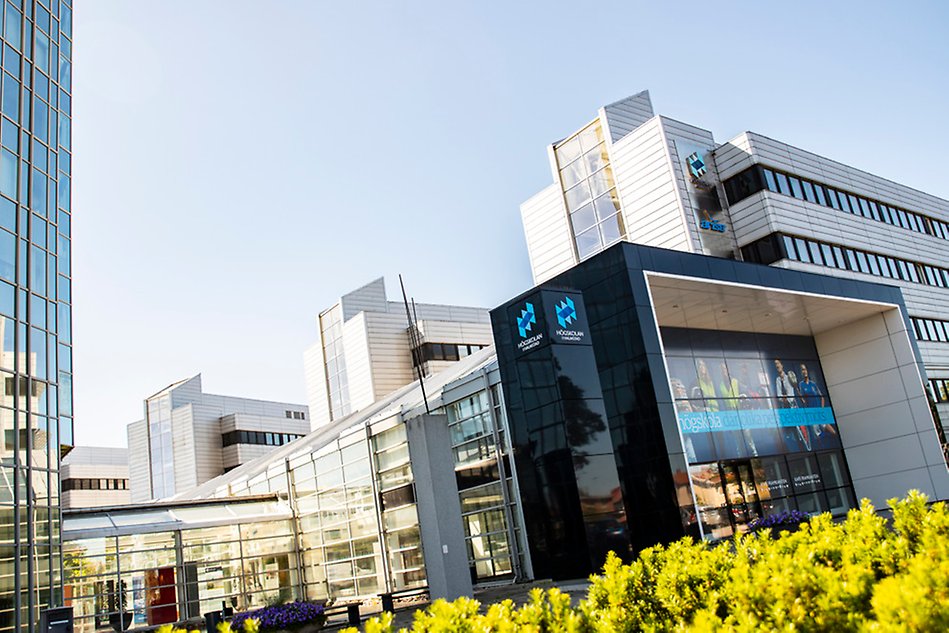Research programmes for profiling
In the next few years, Halmstad University will establish research programmes in order to further strengthen the University's profile. The programmes must clearly contribute to one or both of the University's two focus areas – Health Innovation and Smart Cities and Communities – be long-term, socially relevant and multidisciplinary. The first programme is about digitalisation and learning.
“The research programmes must contribute to the University's profiling, strengthen the education, and have strong collaborative elements.”
Stephen Hwang,Vice-Chancellor
“The research programmes must contribute to the University's profiling, strengthen the education, and have strong collaborative elements. In a few years' time, most of the University's research will be conducted within research programmes. The goal is also for some of the programmes to achieve international luminosity”, says the University's Vice-Chancellor Stephen Hwang.
A large part of the University's research is already linked to the focus areas. Through the research programmes, that connection is clarified and developed.
“Halmstad University has always been associated with innovation. A very large part of the University's research takes place in collaboration with other actors, and we are seen as a positive example in terms of utilization and value creation. We will continue to build on this, and strive to further link research to societal challenges, formulate clear visions and adopt a multidisciplinary approach, says Thorsteinn Rögnvaldsson, Deputy Vice-Chancellor with specific responsibility for research and doctoral education.
In the autumn of 2021, the University's researchers began work on developing applications to establish research programmes, and now the first decision to establish a research programme has been made by the Vice-Chancellor – after external review and recommendation from the Research and Education Board.

Examines learning in a digital society
The research programme LeaDS - Learning in a Digitalised Society, takes its starting point in subjects such as informatics, innovation management, subject didactics, educational science, sociology, media and communication science and robotics, and is led by Pernilla Nilsson, Professor in Science Didactics, and Sylvana Sofkova Hashemi, Professor in Digital Learning.
“The programme connects several areas of knowledge in learning in a digital society. The research projects included in the programme will use interdisciplinary methods to address the challenges in the digitalised society” says Pernilla Nilsson.
The programme contributes to the University's focus area Smart cities and communities and deals with three central themes: digitalisation and learning in school and preschool; digitalisation and learning in higher education and digitalisation and lifelong learning.
“Digitalisation is changing our daily lives and society at large. Digital artifacts and resources affect how citizens of all ages work, study, consume and maintain social contacts. It places new demands on how we organize teaching and learning at all levels: from preschool to school, higher education and further education in the workplace. At the same time as digitalisation entails major changes for the education sector, new opportunities arise to organize learning, both at the individual and the organizational level” says Sylvana Sofkova Hashemi.
The University’s research is in an expansive phase
Applications for research programmes are submitted twice a year, and undergo an external review, before being processed by the University's Research and Education Board, which submits a recommendation to the Vice-Chancellor to either establish or reject the programme.
“The now established research programme received very positive remarks in the external review and it will be exciting to follow its development. I also look forward to more programme applications. Research at Halmstad University has developed very well over the past ten years. We are in an expansive phase, and with the research programmes and the profiling in our focus areas, we will continue to develop the research to a high international level” says Stephen Hwang.
Text: Christa Amnell
Photo: Dan Bergmark
Contact
-
Deputy Vice-Chancellor with specific responsibility for research and doctoral education
-
Professor
-
Professor

